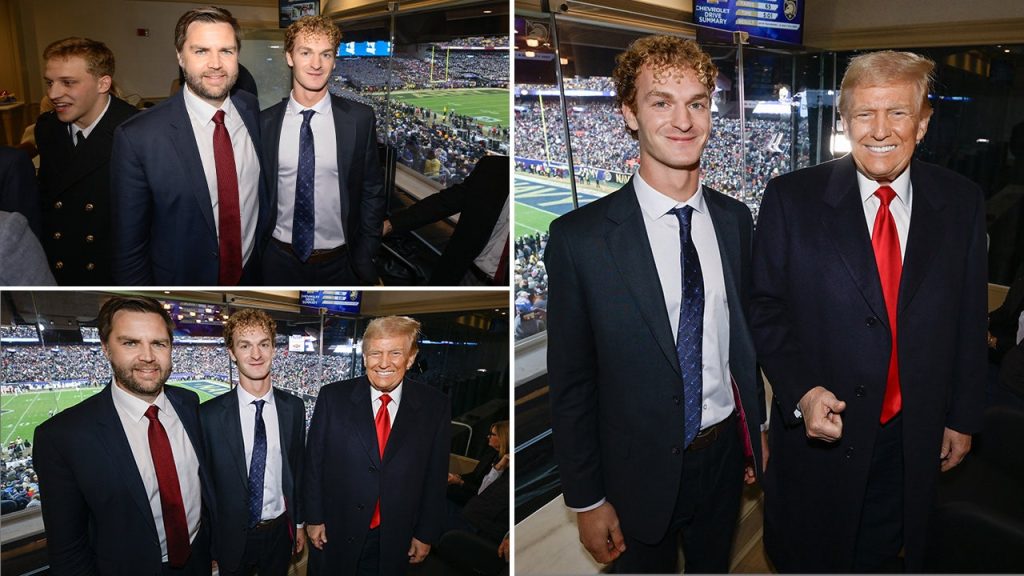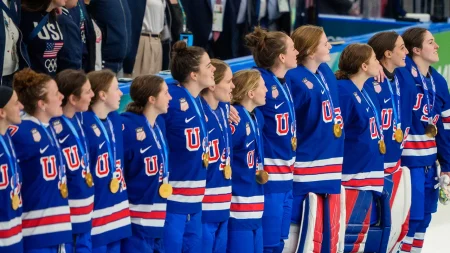The acquittal of Marine veteran Daniel Penny in the manslaughter case involving the death of Jordan Neely continues to reverberate, particularly within conservative circles. Penny’s presence at the 125th Army-Navy game as a guest of President-elect Donald Trump, alongside prominent figures like JD Vance, Elon Musk, and Tulsi Gabbard, transformed the sporting event into a platform for political messaging and a celebration of Penny’s actions. The widely circulated images of Penny with Trump and Vance ignited a wave of support on social media, with many hailing him as a hero and calling for his recognition with the Presidential Medal of Freedom. This public embrace by influential figures further politicized the case, solidifying Penny’s status as a symbol for certain segments of the population. This incident underscores the enduring divisions sparked by the initial subway altercation and its subsequent legal proceedings.
The narrative surrounding Penny’s actions has been carefully crafted by his supporters, portraying him as a Good Samaritan who intervened to protect fellow passengers from a perceived threat. This narrative contrasts sharply with the view held by many who see the incident as a tragic consequence of systemic issues, including homelessness, mental illness, and racial bias. The celebration of Penny’s acquittal further exacerbates these contrasting interpretations, deepening the existing societal divides. The presence of high-profile figures like Trump and Vance at the Army-Navy game amplifies this narrative, providing Penny with a powerful platform and lending further credence to his supporters’ claims. The event served not only as a celebration of Penny’s acquittal but also as a rallying point for those who share his political and social views.
The incident on the subway, culminating in Neely’s death, became a focal point for discussions about race, mental health, and vigilantism. Penny’s supporters argue he acted in self-defense and to protect others from a potentially dangerous individual. Conversely, critics contend that his actions were excessive and motivated by racial bias, highlighting the racial dynamics inherent in the situation. Neely, a Black homeless man struggling with mental illness, represented a vulnerable population often marginalized and misunderstood. The subsequent trial and acquittal further intensified these discussions, with Penny’s supporters viewing the verdict as a vindication of his actions and his critics interpreting it as a failure of the justice system.
The online reactions to Penny’s appearance at the game reflect the deep polarization surrounding the case. While some lauded him as a hero and a symbol of courage, others expressed outrage and condemned the celebration of his actions. Social media platforms became battlegrounds for competing narratives, with each side accusing the other of misrepresenting the facts and manipulating public opinion. This online discourse highlights the difficulty of achieving a nuanced understanding of the incident and its implications, as deeply entrenched beliefs and biases often overshadow factual information and reasoned debate. The case serves as a stark reminder of the challenges posed by social media in fostering constructive dialogue on complex and sensitive issues.
The legal ramifications of the case extend beyond the criminal trial. Jordan Neely’s family has filed a civil lawsuit against Penny, seeking damages for his death. This civil suit opens another legal avenue for exploring the circumstances surrounding the incident and potentially holding Penny accountable for his actions. The outcome of this civil case could further complicate the already contentious narrative surrounding the event. While the criminal trial focused on the specific charges of manslaughter and criminally negligent homicide, the civil suit allows for a broader examination of Penny’s conduct and its consequences. This legal battle will likely prolong the public debate and further entrench the opposing viewpoints surrounding the case.
The case of Daniel Penny and Jordan Neely continues to resonate far beyond the confines of the courtroom and social media platforms. It has become a touchstone for broader societal issues, including race relations, mental health, and the role of vigilantism. The incident and its aftermath expose the deep divisions within American society and the challenges of achieving a shared understanding of complex and emotionally charged events. The differing interpretations of Penny’s actions, the polarized reactions to his acquittal, and the ongoing legal battles underscore the enduring nature of these societal fault lines. The case serves as a stark reminder of the urgent need for constructive dialogue and meaningful solutions to address the underlying issues that contributed to this tragic event.















